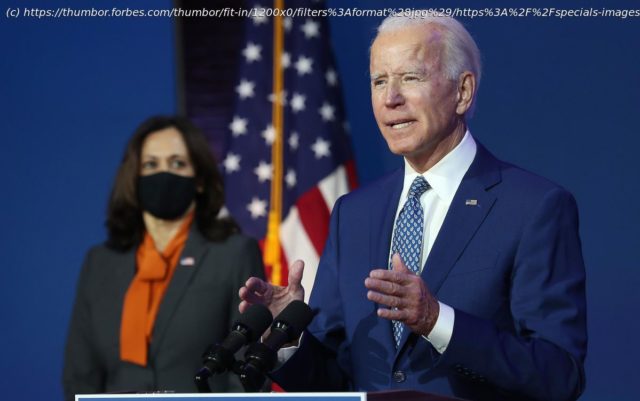Carbon capture, use and sequestration—which would be rewarded under a carbon tax—will expand.
Joe Biden and his transition team have not been shy about telegraphing an intention to kill coal, ban new oil drilling in federal lands and waters, and turn the regulatory screws once more on America’s most carbon-belching industries. In transitioning from intent to strategy, the Biden team has been evaluating a raft of policy initiatives designed to achieve their climate goals. Titans of industry should not be surprised by any of the game changers that are on the way. Fore more than a decade, a vast majority of the U.S. electorate has declared its tacit approval of policies ensuring massive reduction in greenhouse gas emissions. State governments from California to Texas have been leading the charge for renewable energy with mandates, carbon markets or subsidies. In many parts of the country, the feds will be catching up with the states. Here’s what to expect. If the goal is a major reduction in GHG emissions, the simple approach is best. Increase the price of carbon-intensive fuels with a carbon tax. Following Econ 101, consumers will shift demand to less expensive substitutes and reduce fossil fuel consumption. Carbon capture, use and sequestration—which would be rewarded under a carbon tax—will expand. Tax proceeds will be used to offset negative impacts to preserve employment. Social justice is not just a rhetorical consideration. Many are frightened that the energy transition will eliminate their livelihoods. And government actions will be tempered by the necessity of change, weighed against the need to preserve energy supply chains for the economy and for national security. The Biden administration will rejoin the Paris Agreement to demonstrate commitment. However, leadership is required. The Paris Agreement and earlier Kyoto Protocol have had no impact on the trends of both increasing carbon emissions and decreasing carbon intensity per unit of global GDP. The administration will likely implement the Climate Club plan of Nobel winner William Nordhaus in order to change the trajectories—reduce carbon emissions and greatly accelerate the decreasing carbon intensity per unit of GDP. Under the Nordhaus plan, the U.S. would institute a domestic carbon pricing mechanism and then impose a tariff on goods from countries that did not follow suit. The European Union is on track to implement a similar plan with a carbon border tax. The Climate Club will also need to address issues concerning social justice. World energy use is increasing as energy poverty is eliminated. The global population is expected to grow by 3 billion by 2050 due to decreased mortality rates in developing nations, exacerbating the conflict between the growing demand for energy and the imperative to reduce GHG emissions. Enlisting the major energy companies will not be difficult. They have been out in front of Congress and the last two administrations with their Oil and Gas Climate Initiative. They have lobbied for the certainty of a carbon tax since the days of the Waxman-Markey bill. Impose the carbon tax at the wellhead, the mine mouth or the port of entry for fossil fuels, and industry will get behind the administration. Oil companies are important to the transition for several reasons. First, because they have the current cash flow, product distribution network and much of the technical expertise necessary to lead the transition.
Home
United States
USA — Financial Here’s How The Biden Presidency Will Impact Markets, Climate And Energy






